Shab-e-Qadr, also known as the Night of Decree, is a special night in the last ten days of Ramadan, considered the holiest night of the year for Muslims. It is believed to be the night when the Quran was first revealed to the Prophet Muhammad. Many Muslims observe this night with prayer, supplication, and seeking forgiveness. The exact date of Laylat al-Qadr is not known, but it is commonly observed on the odd-numbered nights in the last ten days of Ramadan, such as the 21st, 23rd, 25th, 27th, or 29th night. Observing and worshiping during this night is believed to carry great rewards and blessings.
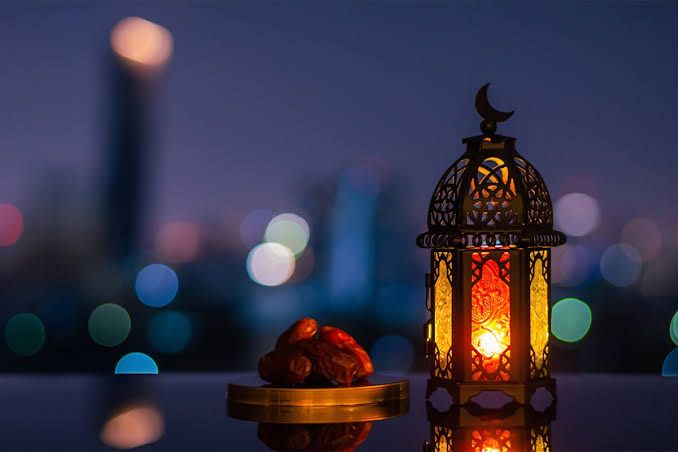
Source
To elaborate further, Shab-e-Qadr is often described as "better than a thousand months" in the Quran (Surah Al-Qadr, 97:3), signifying the immense blessings and rewards associated with it. Muslims around the world spend the night in prayers, recitation of the Quran, seeking forgiveness, and making supplications for themselves and their loved ones.
The significance of Shab-e-Qadr lies in the belief that all acts of worship and good deeds performed on this night are multiplied significantly. It is a time for reflection, seeking closeness to Allah, and seeking guidance and blessings for the year ahead. Many Muslims engage in acts of worship throughout the night and indulge in various forms of remembrance and supplication.
The exact date of Shab-e-Qadr is not fixed and can fall on any of the odd-numbered nights in the last ten days of Ramadan. This uncertainty encourages Muslims to seek out the night of decree with greater fervor and devotion during the last ten nights of Ramadan. The belief in the spiritual significance of Shab-e-Qadr serves as a source of motivation for Muslims to increase their worship, seek forgiveness, and draw closer to Allah during this blessed time.
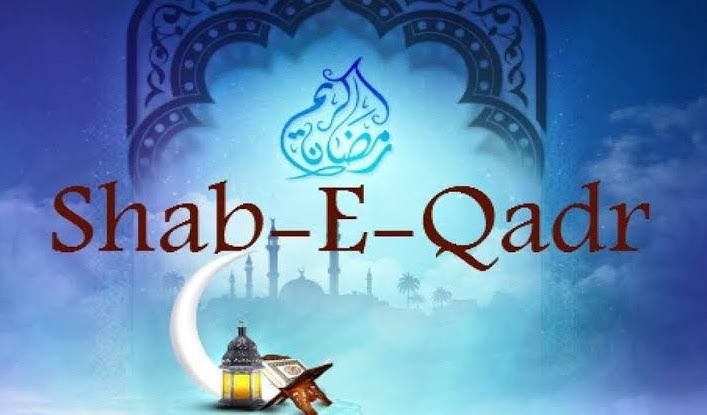
Ramadan is the ninth month of the Islamic lunar calendar, observed by Muslims worldwide as a month of fasting, prayer, reflection, and community. It is considered one of the most sacred months in Islam. Muslims fast from dawn until sunset, refraining from food, drink, smoking, and other physical needs during daylight hours. Observing Ramadan is one of the Five Pillars of Islam, which are the core beliefs and practices that all Muslims follow. It is a time for spiritual growth, self-discipline, and increased devotion to worship and charity.Ramadan is also a time for increased acts of worship, such as reading the Quran, performing additional prayers (Taraweeh), and engaging in acts of charity and kindness. It is believed that during Ramadan, the gates of heaven are open, the gates of hell are closed, and the devils are chained. This is seen as a time of purification, self-discipline, and spiritual reflection for Muslims.
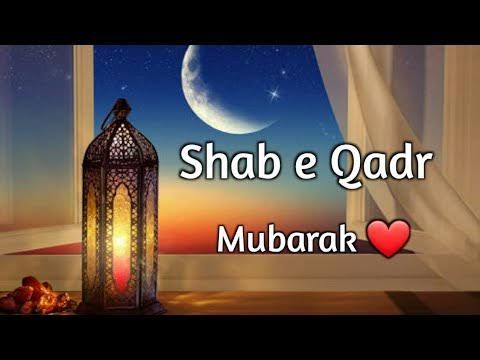
The end of Ramadan is marked by the celebration of Eid al-Fitr, a festival that begins with the sighting of the new moon. Eid al-Fitr is a time of joy, feasting, giving thanks, and sharing with others. It is a time for family gatherings, community prayers, and acts of charity to help those in need.
Throughout Ramadan, Muslims also reflect on the values of empathy, compassion, and generosity. Fasting is not only about abstaining from food and drink but also about fosqShab-e-Qadr, also known as the Night of Decree, is a special night in the last ten days of Ramadan, considered the holiest night of the year for Muslims. It is believed to be the night when the Quran was first revealed to the Prophet Muhammad. Many Muslims observe this night with prayer, supplication, and seeking forgiveness. The exact date of Laylat al-Qadr is not known, but it is commonly observed on the odd-numbered nights in the last ten days of Ramadan, such as the 21st, 23rd, 25th, 27th, or 29th night. Observing and worshiping during this night is believed to carry great rewards and blessings.
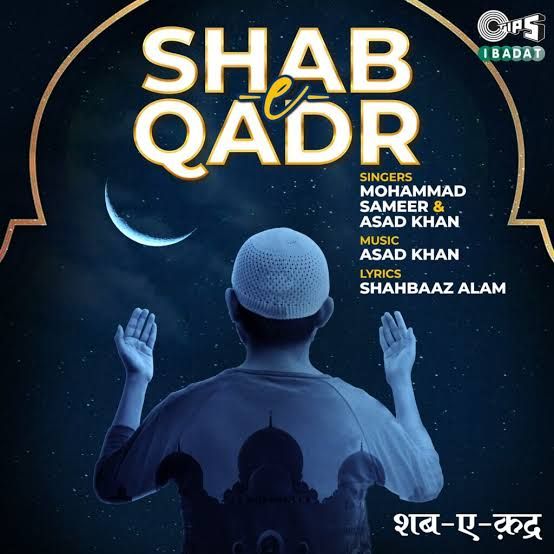
To elaborate further, Shab-e-Qadr is often described as "better than a thousand months" in the Quran (Surah Al-Qadr, 97:3), signifying the immense blessings and rewards associated with it. Muslims around the world spend the night in prayers, recitation of the Quran, seeking forgiveness, and making supplications for themselves and their loved ones.
The significance of Shab-e-Qadr lies in the belief that all acts of worship and good deeds performed on this night are multiplied significantly. It is a time for reflection, seeking closeness to Allah, and seeking guidance and blessings for the year ahead. Many Muslims engage in acts of worship throughout the night and indulge in various forms of remembrance and supplication.
The exact date of Shab-e-Qadr is not fixed and can fall on any of the odd-numbered nights in the last ten days of Ramadan. This uncertainty encourages Muslims to seek out the night of decree with greater fervor and devotion during the last ten nights of Ramadan. The belief in the spiritual significance of Shab-e-Qadr serves as a source of motivation for Muslims to increase their worship, seek forgiveness, and draw closer to Allah during this blessed time.
Ramadan is the ninth month of the Islamic lunar calendar, observed by Muslims worldwide as a month of fasting, prayer, reflection, and community. It is considered one of the most sacred months in Islam. Muslims fast from dawn until sunset, refraining from food, drink, smoking, and other physical needs during daylight hours. Observing Ramadan is one of the Five Pillars of Islam, which are the core beliefs and practices that all Muslims follow. It is a time for spiritual growth, self-discipline, and increased devotion to worship and charity.Ramadan is also a time for increased acts of worship, such as reading the Quran, performing additional prayers (Taraweeh), and engaging in acts of charity and kindness. It is believed that during Ramadan, the gates of heaven are open, the gates of hell are closed, and the devils are chained. This is seen as a time of purification, self-discipline, and spiritual reflection for Muslims.
The end of Ramadan is marked by the celebration of Eid al-Fitr, a festival that begins with the sighting of the new moon. Eid al-Fitr is a time of joy, feasting, giving thanks, and sharing with others. It is a time for family gatherings, community prayers, and acts of charity to help those in need.
Throughout Ramadan, Muslims also reflect on the values of empathy, compassion, and generosity. Fasting is not only about abstaining from food and drink but also about fostering a sense of solidarity with those who are less fortunate. It is a time to come closer to one's faith, strengthen relationships with family and community, and seek forgiveness and mercy from Allah.tering a sense of solidarity with those who are less fortunate. It is a time to come closer to one's faith, strengthen relationships with family and community, and seek forgiveness and mercy from Allah.
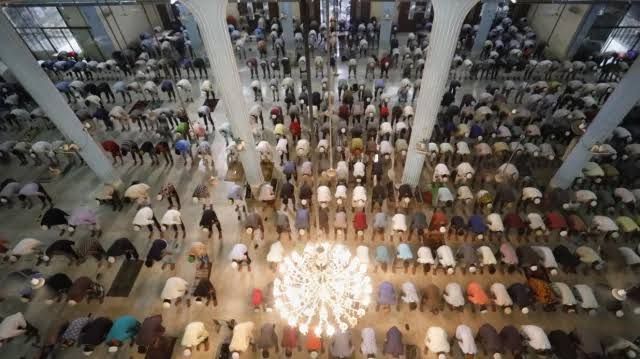
Telegram and Whatsapp